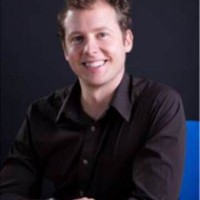The future of audiology – helping people to help themselves
This year as we celebrate the 100 year anniversary of Deaf Education and Audiology at The University of Manchester we’re bringing you a series of thought provoking blogs by our Manchester BRC Hearing Health researchers.
In his blog Dr Piers Dawes, Minimising Risk Programme Lead discusses how Manchester BRC aims to help people with hearing problems have a better quality of life – by helping them to help themselves.
Did you know one in six people in the UK has a hearing problem?
Hearing problems have a big impact on communication and quality of life (of people with hearing problems and their friends and family). However, less than 20% of people get help for their hearing problems.
Very low rates of help seeking and uptake of hearing rehabilitation might be partly due to the way hearing health care is set up. Hearing care is organised along medical lines, with ‘hearing impairment’ seen as an acute medical problem. Hearing care is led by audiologists and focuses on levels of hearing impairment (that is, the damage has been done to the cochlear, the organ of hearing). Impairment is addressed by providing hearing aids and other technological devices.
A medical model of health care may be appropriate for acute health conditions that can be readily treated by clinicians in a clinical setting. But the medical model may not be appropriate for hearing health care.
A hearing problem is a chronic condition that someone lives with every day
Clinicians and researchers in other chronic health conditions – including diabetes, asthma and arthritis have suggested that it would be better to take a different approach to management of chronic health conditions than is taken for acute health problems.
This different approach involves ongoing individualised assessment, collaborative goal setting and skill development. These principals of chronic condition management could easily be applied to hearing problems, and we already have the tools to do this.
Ongoing individualised assessment could be done via internet or app-based tools, or by hearing aids themselves. Information from ongoing assessment would make sure management was up to date and effective. Assessment could include difficulties that people are experiencing in their daily lives, as well as information on the level of hearing impairment.
On-going assessment could draw on developments in ‘ecological momentary assessment’ – a methodology for assessing people’s experiences in real life settings study participants describe their experiences in real time (in their own natural environment). Ecological momentary assessment has promise for application to hearing. Reliable app and internet based hearing impairment assessments are already available, for example those developed by South African company HearX.
In relation to collaborative goal setting and skill development, people could be given support and tools to identify their hearing goals and the problem solving skills to meet them.
For example, the Active Communication Education program developed at the University of Queensland gives people strategies to deal with hearing difficulties in everyday life.
Our approach at Manchester BRC
Our programme of research at the NIHR Manchester Biomedical Research Centre involves putting these tools together to create a new way of managing hearing problems. The research is in collaboration with researchers at Macquarie University and the University of Queensland in Australia.
We propose viewing hearing problems as a chronic condition that is best self-managed by people in their daily lives, rather than as an acute condition that is ‘treated’ by a health care professional in a clinic.
The goal is to give those one in six people in the UK with hearing problems better quality of life by helping them to help themselves.
Manchester BRC Hearing Health will be hosting a showcase in Manchester in October to share the work of the Hearing Health theme.
